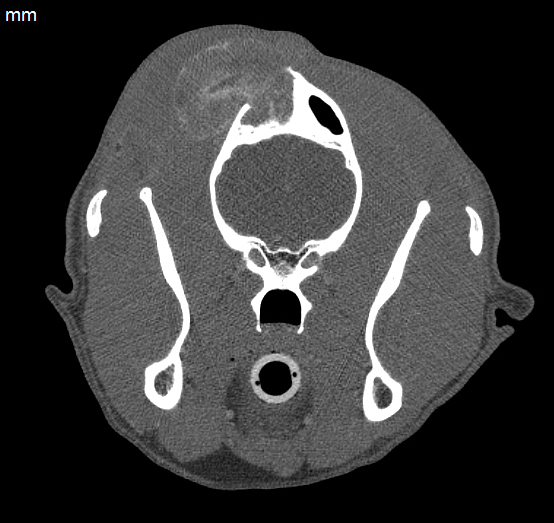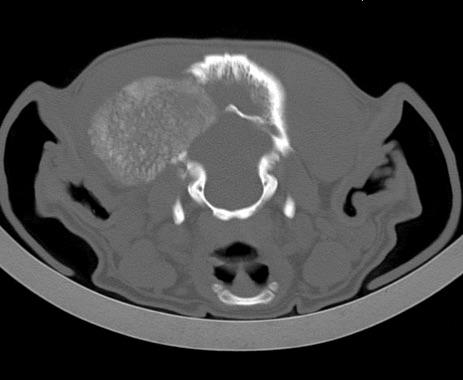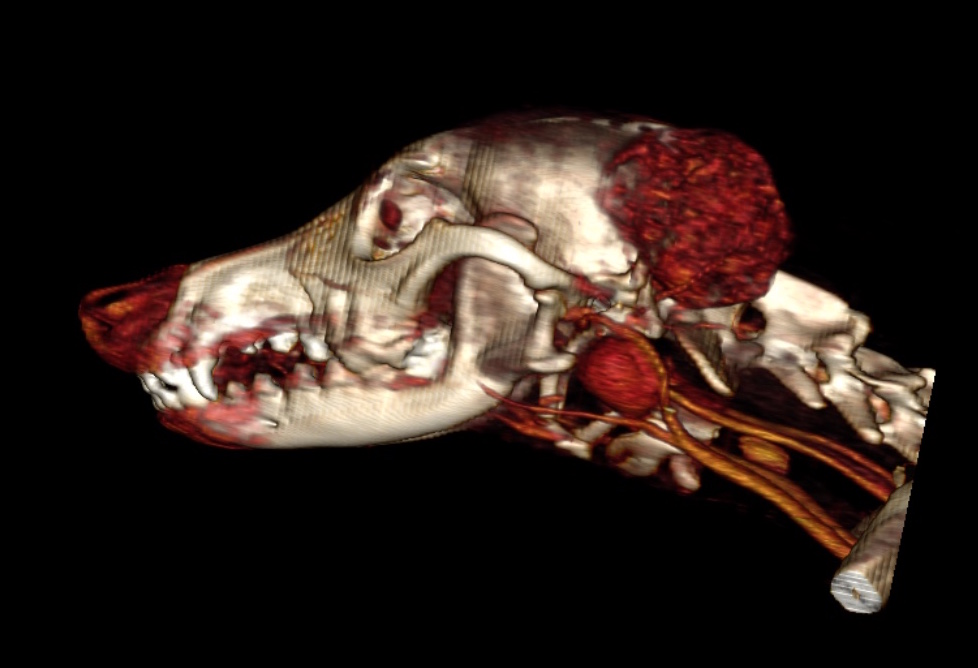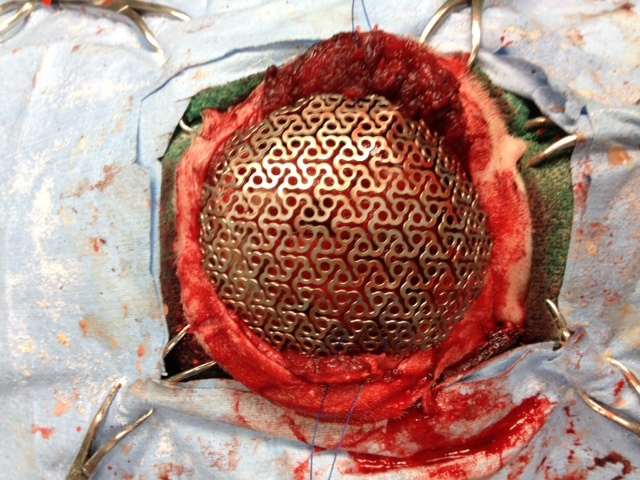skull tumors
BACKGROUND
Skull tumors are uncommon in dogs and very rare in cats. In dogs, the most common skull tumors are malignant and include osteosarcoma and multilobular osteochondrosarcoma (MLO). The major challenge in treating skull tumors is local tumor control (ie, complete excision of the tumor and preventing local tumor recurrence), but metastasis can also occur.
DIAGNOSIS
A biopsy of skull tumors is rarely required because treatment is the same regardless of tumor type. A CT scan is recommended to determine tumor location, the extent of the tumor, and also plan the surgical procedure.
CLINICAL STAGING
Thoracic radiographs or CT scans are recommended to assess the lungs for metastasis.
TREATMENT
Surgical resection is recommended for management of dogs with skull tumors. The feasibility of surgical excision is dependent on the location and extent of the tumor, especially in relation to the dorsal sagittal and transverse sinuses. Following resection, the brain may require protection from trauma. This may involve the use of a titanium mesh internally or a customized helmet externally. Postoperative recovery can sometimes be lengthy (2-14 days) if the tumor extends into the cranial cavity. Chemotherapy should be considered for dogs with osteosarcoma or MLO, however this has not been investigated..
PROGNOSIS
Osteosarcoma
In a non-published study of dogs with skull osteosarcoma, the median survival times were > 1,500 days for dogs with completely excised tumors and approximately 250 days for dogs with incompletely excised tumors. In a more recently published study of 183 dogs with osteosarcoma of the mandible, maxilla, and skull, the median survival time for dogs with surgically excised osteosarcoma was 329 days. The local recurrence rate was 51% (but as high as 80% for the osteosarcomas arising from the skull) and the distant metastatic rate was 39%. Dogs with completely excised skull osteosarcomas had a significantly lower local recurrence rate and better survival times than dogs with incompletely excised osteosarcomas. The role of chemotherapy is unknown, but should be considered.
Multilobular Osteochondrosarcoma
For dogs with MLO, the prognosis is better for dogs with low histologic grade tumors and complete excision. For dogs with grade I MLO, the local recurrence rate is 30%, metastatic rate is 30%, and the median survival time is > 897 days (ie, greater than 50% of dogs are cured with surgery alone). For dogs with grade II MLO, the local recurrence rate is 47%, metastatic rate is 60%, and the median survival time is 520 days. For dogs with grade III MLO, the local recurrence rate is 78%, metastatic rate is 78%, and the median survival time is 405 days.
Last updated on 6th March 2017



















